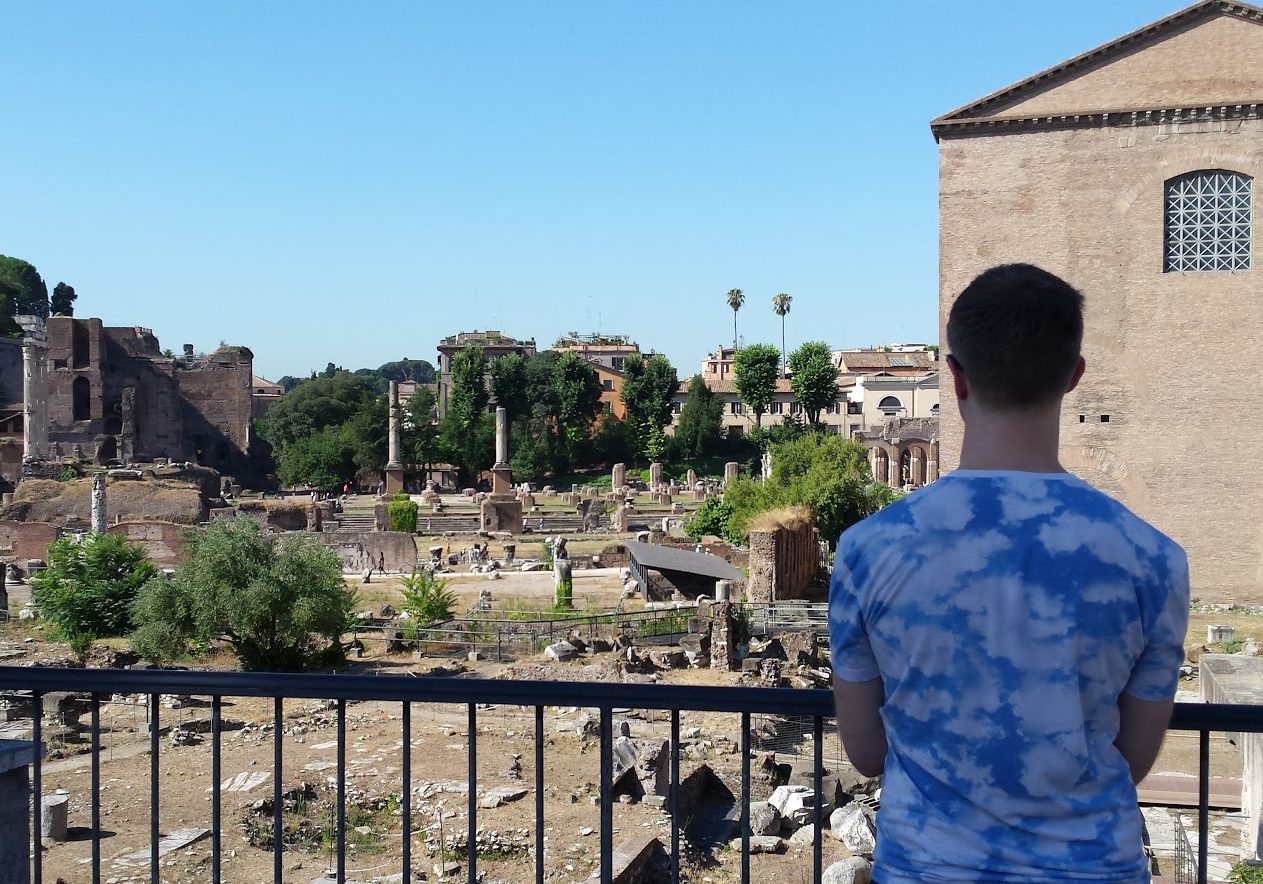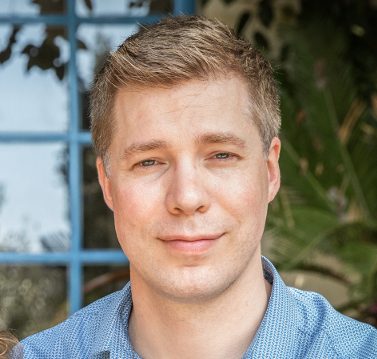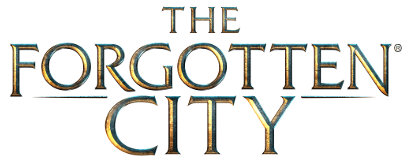Author: nick
why “the forgotten city” is better with an ancient roman setting
By Nick Pearce, 21 October 2018
As many of you know, The Forgotten City is a re-imagining of my mod of the same name. While the mod was pretty cool (it now has over 1.8 million downloads, and won a national Writers’ Guild award), I’m determined to make everything about the stand-alone game better. To that end, one of the most radical changes I’ve made was to switch from a fantasy setting to an ancient Roman setting, complete with authentic art, architecture, and costumes, which you can glimpse in the E3 reveal trailer:
Why? I’m glad you asked!
Personally, I think the experience of discovering and exploring a mysterious ancient Roman city, isolated and forgotten by the world, would be one of the most mind-blowing experiences I can imagine. But there’s more to it than that.

Sure, I could have just made up a new fantasy setting, but as Mark Twain wrote, “truth is stranger than fiction”; any setting I dreamed up would pale in comparison with a thousand years of rich architecture, art, costumes, mythology, and philosophy that already exist—thanks to the combined efforts of millions of Romans over the course of their flourishing civilization. Of course, all of this means there’s an enormous amount of source material to draw from. So, I visited Rome and other parts of Italy, read a huge pile of Roman history books, listened to lectures, watched documentaries, and scoured the internet for pictures of Roman streets, arches, temples, aqueducts, forums, mosaics, columns and niches—all in the name of creating an archaeologically authentic experience that’s enjoyable for everyone from history buffs to the completely uninitiated.

Pictured: Me taking notes at some Roman ruins
Despite my extensive research, I’m by no means an expert in ancient Roman history, so when I heard about a young archaeologist who used her degree to translate ancient writings from another popular game, I reached out immediately. Her name is Claire Manning, and I’m very pleased to have her on the team, helping out with targeted research.
But this isn’t just an visual overhaul; it goes to the heart of the story as well. The game takes place in a city where if one person commits a sin, everybody dies. This scenario explores philosophical questions such as whether it’s possible to overcome the timeless problems with human nature by imposing draconian laws and surveillance, or whether the cure is worse than the disease. This story fits remarkably well within the framework of ancient Roman mythology because this is exactly the kind of messed up experiment the ancient Roman gods were said to engage in, like in the story of Baucis and Philemon, in which Jupiter and Mercury destroyed an entire town after it failed their bizarre morality test.

The premise is also a vehicle for exploring the difference between right and wrong. While most people think they know the difference, I’m sure their confidence would falter if the stakes were higher, like if their own life—and the lives of everyone around them—depended on getting it right every time. The historical setting allows us to explore questions of right and wrong from a range of real-world philosophical perspectives originating in that era, from the cold hard logic of Stoicism, to the compassion of Christianity, to those who believe morality is (literally) written in stone.
By weaving the story into an ancient Roman setting, we’ve been able to enrich everything about the game, and I hope it inspires some fans to take an interest in this period of history as well.
I can’t wait to release the game in 2019 and show you what we’ve been working on. If you haven’t already, please sign up to our mailing list at forgottencitygame.com, add the game to your Steam Wishlist, and follow us on Twitter, Facebook, or Youtube!
A final note: As an indie studio we don’t have a big marketing budget, so we’re always grateful to anyone who can help spread our message to interested friends!
Why I walked away from my legal career to make video games
By Nick Pearce, 6 October 2018
Before I founded Modern Storyteller and began making The Forgotten City, I was working as a legal and strategy advisor to a multi-billion dollar tech company. Yes, that is a bizarre career change, and yes, I completely understand why it leaves a lot of people scratching their heads. It’s extremely unusual to walk away from an established professional career path to enter into an inherently risky industry, where studios rise and fall constantly, and most indie games fail to turn a profit. So why did I do it?
Back in 2012 I was working in a field called Regulatory Strategy. Don’t worry, nobody knows what that means. All you need to know is that when I explained it to people at BBQs, they had no follow-up questions. It was a good traditional career path, but it left me with a lot of unused creative energy. So I decided to pour that energy into a passion project in my spare time.
That passion project was my mod, The Forgotten City, which has now been downloaded over 1.7 million times (at the time of writing), won a national Writers’ Guild award,and has received critical acclaim from the likes of PC Gamer, Kotaku, IGN, among others. I never expected it to become so popular. All I did was make the kind of game I wanted to play; one that respected the intelligence of players by presenting them with a complex interpersonal problem and giving them the freedom to solve it however they felt was best. It didn’t hold anyone’s hand. It punished players for making stupid decisions or trying to rely on brute force, and rewarded them for thinking laterally. I was amazed that it resonated with so many people. On reflection, I think there are a lot of intelligent gamers out there who are being ignored by big game studios, which are simplifying their games in an attempt to appeal to the broadest possible audience.
Back when I was making the mod, I could have happily worked on it all day, every day. It lit up parts of my brain that had been asleep all my life. Through trial and error, I learned level design, programming, story writing, casting, directing and mastering audio, among other things. It was a revelation to me that I could learn all these skills as and when I needed them. I felt like Neo plugging into the Matrix. I’d never been able to do that before. Why? Because I’d discovered something about which I was truly passionate. But I had a demanding job to go to, so I could only work on it in my precious spare time. So I worked on it for an average of 11 hours every week, for 3 years, totalling 1,700 hours in the end. As much as I loved it, working that hard is crazy, particularly as in the end, fewer than 0.01% of mod users donated. It became clear that modding wasn’t going to be sustainable in the long term.
Still, a lot of people wanted to know what I was going to make next, and I had to make a decision: game development or legal career? I knew that going to work for an established studio wasn’t an option, since I’m committed to living in Australia, where I just couldn’t see a viable career path for myself. Then I met some developers who encouraged me to start my own studio. At first I laughed it off, but I thought about it, from every possible angle, for about a year. I did my research, chatted with various developers, and spoke to my wife at length. I knew it would be hugely risky, since indie games tend to cost a small fortune to make, most of them don’t turn a profit, and the market becomes more crowded every year.
It was a classic head vs heart dilemma. Rationally, I knew I had a good traditional career which had taken me 10 years to build, and if I took a break from it, I might never be able to go back. But I had a burning desire to keep making games, and I’d connected with a market of intelligent gamers who kept asking about my next project.
I was on that precipice, agonizing over whether to take the leap, when I discovered I won a national Writers’ Guild award. A good friend told me at the time: “If there is a God, right now he’s going: Nick, how many signs do I need to give you?!”
I don’t believe in God, but I believe that playing it safe all your life and refusing to take any risks is, itself, an act of risk-taking. What if you spend the rest of your life wondering what would have happened if you had pursued your passion?
So, with the backing of my awesome wife, I took the leap.
So far, I have no regrets. We’ve had some wins already; I managed to recruit some seriously talented people to my team like Alex Goss, Ben Roach, Laura Michet and Michael Allen. We’ve received funding from the wonderful Film Victoria, and we were invited to reveal our game on stage at E3 and even won an Unreal E3 award. But there’s still a long journey ahead of us before we release The Forgotten City in 2019.
This blog will document that journey. I hope you’ll join us along the way.
Note: If you haven’t yet added The Forgotten City to your Steam wishlist, you can do that here. You’ll be notified automatically when we release it!

Nick Pearce, Creative Director, Modern Storyteller
